Hepatitis, an inflammation of the liver, is a significant global health concern, ” target=”_blank” rel=”noreferrer noopener”>affecting millions of people worldwide. Hepatitis awareness is crucial for understanding prevention. It can be caused by various factors, including viral infections (hepatitis A, B, C, D, and E), excessive alcohol consumption, certain medications, and underlying medical conditions. Preventing hepatitis is crucial for maintaining liver health and overall well-being.
FIRST AIDERS
All First Aiders need to be aware of these risks, to ensure their safety and that of the casualty. Hepatitis awareness should be part of first aid discussions. You and/or the casualty do not have the right to know medical history, so always use PPE.
As I teach PPE as part of all first aid training, I always start with imagine the grossest stuff on your gloves: blood, vomit, poop, etc. Ick, but now you are ready to learn how doff used gloves properly. Is there anyone in your life, are you are not able to kiss or hug for 3 to 6 months? That’s how long it takes to get results.
Here are some effective strategies to prevent hepatitis:
1. Vaccination against Hepatitis:
Vaccination is one of the most effective ways to prevent hepatitis. Vaccines are available for hepatitis A and B, providing long-lasting immunity. The hepatitis B vaccine is particularly important as it also helps prevent hepatitis D, which can only occur in conjunction with hepatitis B. This vaccine is meant for all infants, healthcare workers, and individuals at higher risk of infection.
2. Safe Food and Water Practices:
Hepatitis A and E are primarily transmitted through contaminated food and water. Ensuring safe food and water practices can reduce the risk of infection. This includes drinking clean water, avoiding raw or undercooked shellfish, and practicing good hygiene, such as washing hands thoroughly with soap and water before eating and after using the restroom. VIDEO
3. Safe Sexual Practices:
Emphasizing hepatitis awareness, I’ll just say ‘Know who you are sharing body fluids with’.
4. Avoiding Needle Sharing:
Contact with infected blood commonly spreads hepatitis B and C. It’s crucial to avoid sharing needles or other drug-injection equipment. Increasing hepatitis awareness will lead healthcare settings to adhere to strict sterilization protocols. Individuals should ensure that licensed professionals use sterile equipment for any body piercings or tattoos.
5. Blood Safety:
Ensuring the safety of blood transfusions is vital for preventing hepatitis. Blood is now screened for hepatitis B and C before transfusion, this helps hepatitis awareness. This practice has significantly reduced the transmission of hepatitis through blood transfusions.
6. Mother-to-Child Hepatitis Transmission:
Pregnant women should be screened for hepatitis B. If they test positive, then their newborns should receive the hepatitis B vaccine and immunoglobulin within 12 hours of birth. Consequently, this can prevent the transmission of the virus from mother to child, thereby highlighting the importance of awareness.
7. Awareness and Education of Hepatitis:
Raising hepatitis awareness and its prevention is crucial. Public health campaigns, community education programs, and routine screenings can help identify and prevent the spread of hepatitis. Individuals should be informed about the risks, symptoms, and prevention strategies.
Conclusion:
First Aiders and Healthcare Professionals follow PPE safe practices at all times. One life, One liver.
Preventing hepatitis requires a comprehensive approach involving vaccination, safe practices, and public awareness, which can be fostered by increased hepatitis awareness. By adopting these strategies, individuals and communities can significantly reduce the incidence of hepatitis and protect liver health, ultimately contributing to a healthier and more resilient population.

